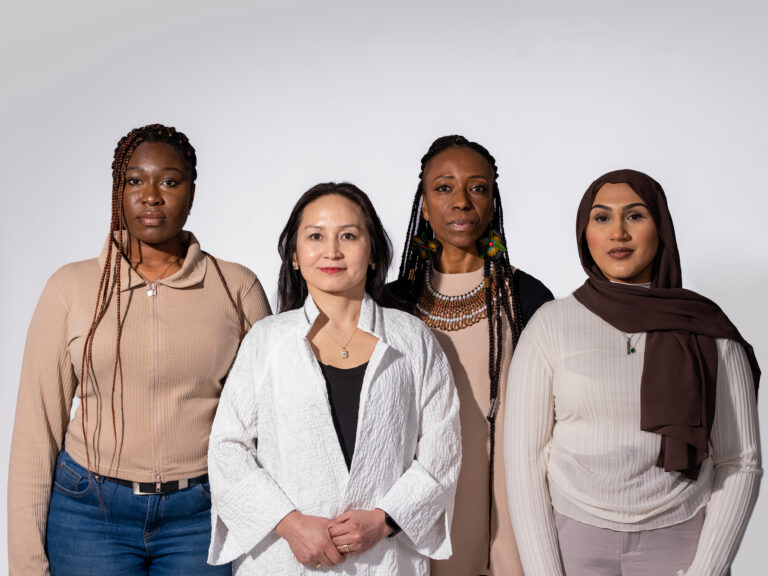by Isabella Lapadula
International students contribute significantly to the UK economy, but recent Home Office policies challenge their future plans. Isabella Lapadula, an undergraduate student from Venezuela at Edinburgh University, highlights their struggles amid the government’s contradictory stance on raising student numbers while closing doors upon graduation.
Noemi* feels like she has been planning her entire professional life around visas. She arrived in 2020 with the announcement of the graduate visa, a route that would allow her to stay in the UK for two years upon the successful completion of her degree.
She knew she wanted to work in psychotherapy or counselling and graduated with a degree in psychology from Oxford Brookes University in 2023. She planned to gain work experience with the graduate route and apply for a post-graduate programme. To then apply for another visa, either the Skilled Worker Visa or a Family Visa, given that her partner is a UK citizen.
Noemi, who is 23 and half-Japanese and half-Chilean, considers the UK “essentially home” due to the multicultural environment and safety it has provided her.
But in December 2023, when Home Secretary James Cleverly announced hikes in salary thresholds for the Skilled Worker Visa and the Family Visa, Noemi started obsessively checking the news daily, and uncertainty and confusion filtered into her everyday life.
Despite feeling that she’s planned her future well, Noemi worries that her career prospects could easily fall apart if she isn’t approved for a visa. So, she watches this election closely, knowing her future hangs in the balance.

Navigating Uncertainty: International Students in the UK post-Brexit
The years leading up to this election have intensely repositioned the goals, aspirations and experiences of international students and recent graduates in the UK. While the graduate visa allows people to stay in the UK for up to two years, either participating in further study, working or looking for work, rising visa costs and recent increases to the minimum salary requirements put the future of many young graduates into question.
With the changes in April 2024, the salary threshold for the Skilled Worker Visa rose from £26,200 to £38,700. This is a steep figure for young graduates seeking employment and visa sponsorship. According to the Department for Education, the average graduate salary is £38,500, but within five years of obtaining a degree, there are many industries where the standard is lower.
Maria*, 21, is from Milan, Italy, but she often feels “more at home in anglophone spaces” than Italian ones. She will soon be graduating with a degree in English Literature from Durham University, and like 44% of international students, she hopes to stay in the UK to gain graduate experience.
When Maria started university, she knew she wanted to be involved in creative industries in the UK. She had plans to study for a Masters in Writing for Performance. Still, it became obvious that with a graduate visa, it would be “impossible” for her to earn the required salary in the creative sector, even with salary exceptions granted to recent graduates under 26. This forced a complete “rewiring of everything [she] had understood her future to be”.
“Post-Brexit, these anti-immigration stances do not work; they isolate people who could bring diversity, culture and money into this country”, Maria says.

Building Up Only to Shut Down: The Contradictions Facing International Students in the UK
The economic value of international students and graduates remains undoubtable. According to the 2024 policy report by the UK Council for International Students (UKCISA), the total net impact of international students on the UK economy was £37.4 billion. Over their studies, every EU student contributes around £137,000, and those from the rest of the world contribute about £107,000.
In the 2021 International Education strategy, the government set out ambitions to increase the value of education exports to £35 billion and increase the number of international students studying in the UK to 600,000 annually by 2030. This shows incongruity between the government’s ambition to increase international student numbers while also closing doors on those same students when they graduate.
While hopes for changes in immigration policy are central issues for international students during this election cycle, they are not the only significant issues.
Maria “always feels the weight of UK politics” not only as an immigrant but through connecting with locals and living in a small, northeast, post-industrial city. “It’s impossible not to feel politics or see its impact”, she says.
Dominic Smithies from Student Minds, a charity dedicated to student mental health, mentions that the main issues students are worried about are “access to health, care, the cost of living and housing” and “not just the availability of, but the quality of housing.” These issues affect students, both domestic and international.
Noemi explains how the housing crisis has affected her since she was a student in Oxford and during her move to Scotland in 2023. Noemi currently works, but surviving on more or less minimum wage is a struggle. She affirms that the same problems affecting British society also affect her: the cost of living and housing are significant challenges for her “because this is [her] home too”; this is where she works and contributes.
Victoria Cuesta, 22, would also like to see changes in terms of the housing crisis and the cost of living crisis. She studied International Relations at King’s College London and moved to the UK under the EU-settlement scheme. Though she wanted to stay in the UK and eventually gain settled status, the cost of living crisis forced her to return to Spain after her studies. “Paying rent and then not being able to take the tube some days was hard, a struggle”, she says.

Victoria was born and raised in Valencia, Venezuela, and moved to Spain in 2018. She has great respect for the robust democratic tradition in the UK and Europe at large, given that in Venezuela, “[one] can only dream of democracy.”
“Elections are periods of uncertainty of what the future holds; while they can be a time of great excitement for people comfortable with change, they can be unsettling and disruptive”, Dominic explains.
International politics plays a role for international students particularly, as sensitivities around their international status are heightened. While university spaces are “well-protected spaces” where students can feel safe engaging in politics, harmful narratives and discourse during this election can affect how international students feel.
So, despite finding the election a crucial time for change, there is also exhaustion attached to being immersed in UK politics. Since many international students are not eligible to vote in UK elections, there is not much they can do.
“Even if I stay informed or get upset or get nervous, nothing is going to change; nothing I can do will change anything because I simply cannot participate.” – Noemi.
“I am so exhausted. I can’t put myself through learning and debating. I find that there is a part of me that still feels outside of it, despite how it affects me.” – Maria.
Tuva Lægreid, a 23-year-old final-year student from Norway, explains how not having access to the EU settlement scheme ultimately made her choose not to pursue a career in the UK. Despite this, she hopes that the election will go “in a positive direction in terms of inclusivity and openness” for her friends who plan to stay.
Tuva has been waiting for the tide to turn. Looking at European politics and recent elections, this doesn’t seem to be happening. So “If [the tide turns] in the UK, and we get a more open, progressive, less conservative government, I hope that will influence the rest of Europe positively”, she says.
However, Tuva feels that negative attitudes toward migration will not change quickly, even with a Labour win. Similarly, Victoria feels that neither party is really addressing the cost of living and housing crises. “Even if Labour wins, people will not be satisfied unless those concerns are addressed.” She expresses that change “is more than just democracy; it takes a socioeconomic revival.”
Regardless, Maria hopes “for the bettering of what feels like a very hopeless time in UK politics. For all its faults, the UK is such a brilliant country that deserves better from its government and people.”
Young people recognise the uphill battle for change and the uncertainty that elections often pose, especially when you don’t have a voice. As international students, Noemi, Maria, Victoria and Tuva all see their futures hanging in the balance of this election. They can only hope for change and the chance to continue building their lives.
*For personal reasons, the full names of the interviewees cannot be revealed.
Isabella Lapadula was born and raised amid passion and chaos in Caracas, Venezuela. She currently resides in Edinburgh, where she studies History and English Literature. As a journalist, she strives to uncover stories prioritising truth and humanity.


